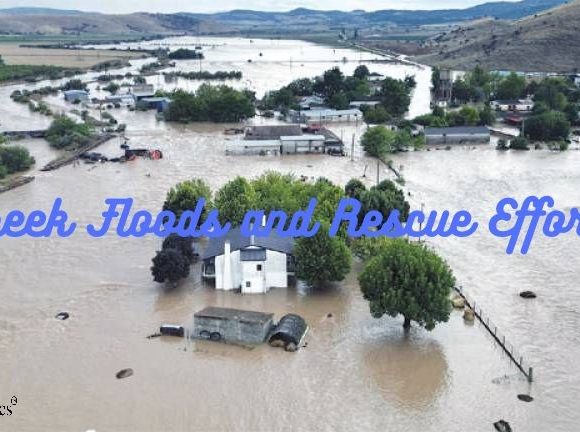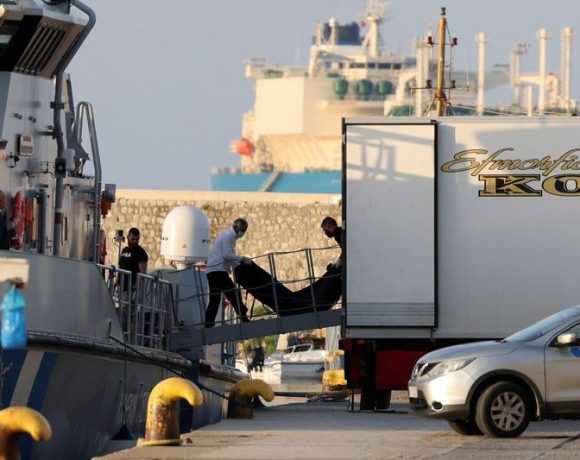
In central Greece, rescue efforts are underway to reach hundreds of individuals stranded by severe floods, resulting in 10 casualties.
Prime Minister Kyriakos Mitsotakis has emphasized the significant challenge Greeks are facing in their battle against the forces of nature.
Following days of heavy rainfall, rivers have overflowed, leading to the submersion of villages and the destruction of homes and bridges.
Residents in the vicinity of Palamas and Karditsa have issued appeals for essential supplies such as food and water.
The plains of Thessaly, after enduring weeks of scorching temperatures and wildfires, have been inundated by a three-day-long storm.
Within a 24-hour period, an astonishing 800mm (31.5 inches) of rain poured down, surpassing the region’s average annual rainfall.
Larissa, a major city with 150,000 inhabitants, is now under threat as the River Pineios has breached its banks in certain suburbs. This city is not only significant in size but also serves as the agricultural hub for the entire country, with nearly a quarter of this year’s crop production being lost.
Satellite imagery has revealed extensive flooding across approximately 73,000 square meters of land in Thessaly.
Many residents in the region are expressing anger towards the Greek authorities, alleging that climate change is being used as an excuse for subpar construction projects. For instance, a bridge that collapsed three years ago due to a cyclone was subsequently rebuilt and is now completely destroyed again, symbolizing government failures for many Greeks.
The city of Larissa has been transformed beyond recognition, with numerous impassable roads, flooded houses at lower elevations, and extensive infrastructure damage caused by the storm’s fury.
The devastation is further compounded by the remnants of the wildfires that Greece has battled throughout the summer, resulting in burnt trees and scorched land.
Xenia, a long-time resident, tearfully watches her home from a distance, which is now mostly submerged. She contemplates the possibility of never returning to her beloved home and having to rent an affordable apartment with her modest salary.
The death toll has climbed to 10, with at least four individuals reported missing, raising concerns that the number may rise as rescuers gain access to more flooded areas.
During visits to the hardest-hit regions, Prime Minister Mitsotakis described the situation as an unprecedented natural phenomenon. He pledged to expedite compensation for those whose homes had been destroyed or damaged.
Although the rain has mostly ceased, floodwaters in certain areas remain at depths exceeding 2 meters (6.5 feet). The coastal city of Volos has been without clean drinking water for four days, prompting residents to collect water from various sources.
The Greek fire brigade has conducted over 1,800 rescues across Greece since Tuesday and continues to search for missing individuals, including an Austrian couple swept away with their honeymoon cabin.
These floods come on the heels of Greece’s hottest summer on record and extensive wildfires in the northern part of the country. Scientists attribute the increasing frequency and severity of such extreme weather events to climate change.
Picture Courtesy: Google/images are subject to copyright

